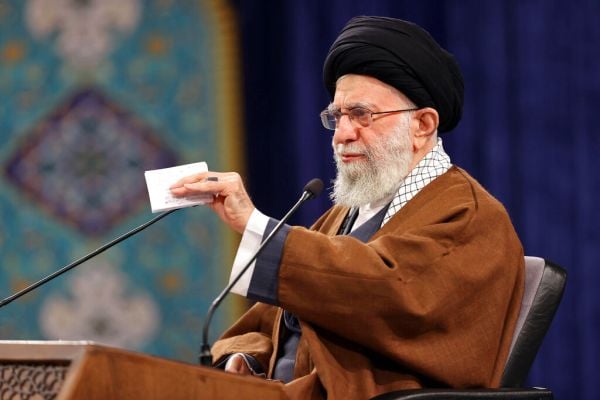|
Getting your Trinity Audio player ready...
|
Iran Holds Emergency Meeting Following Reports of Israeli Strike Targeting Hezbollah Leader Nasrallah
Edited by: Fern Sidman
Iran’s Supreme Leader, Ayatollah Ali Khamenei, convened an emergency meeting of the Supreme National Security Council on Friday night in response to reports that Hassan Nasrallah, the leader of Hezbollah, was the target of an Israeli airstrike in Beirut. This high-level meeting, confirmed by two Iranian officials with knowledge of the situation, signals the seriousness with which Tehran views the potential targeting of its key ally in Lebanon. As tensions continue to escalate between Israel and Hezbollah, fears are mounting that the conflict could pull Iran directly into the fray, with the risk of igniting a broader regional war.
According to The New York Times, the airstrikes in Beirut’s southern suburbs, a known Hezbollah stronghold, have prompted strong reactions from Iran and other international actors. The Iranian embassy in Lebanon condemned the strikes as “a reprehensible crime and reckless behavior,” warning that this latest escalation “constitutes a dangerous escalation that changes the rules of the game.” This statement reflects Tehran’s growing concern about the intensity of the conflict and the potential consequences for regional stability. Iran, as Hezbollah’s primary financial and military backer, sees any attack on the group’s leadership as a direct challenge to its influence in Lebanon and the broader Middle East.
The Israeli airstrikes, which reportedly targeted Nasrallah’s command center in Beirut, come at a particularly volatile time in the region. With Hezbollah and Israel engaged in a prolonged conflict, the possibility of Nasrallah being killed in the strike would have profound consequences for the balance of power in Lebanon and the wider region. According to The New York Times, unconfirmed reports of Nasrallah’s fate have fueled widespread speculation, adding to the anxiety that the conflict could spiral out of control. If Hezbollah’s leader were indeed killed or seriously injured, it would mark a significant turning point, potentially leading to Iranian retaliation and a broader escalation of hostilities.
The meeting called by Ayatollah Khamenei reflects Iran’s strategic interest in the survival of Hezbollah’s leadership. Nasrallah has been a pivotal figure in maintaining Hezbollah’s political and military power, not just in Lebanon but also as a key component of Iran’s influence in the region. For Tehran, Hezbollah represents a crucial element of its regional strategy, particularly in its efforts to counterbalance Israeli and U.S. influence. As The New York Times noted, the possibility of direct Iranian involvement in the conflict would dramatically shift the dynamics of the war, potentially drawing in other regional players and igniting a larger, more destructive conflict.
International reactions to the situation have been marked by growing concern over the potential for a wider regional war. World leaders fear that the intensifying confrontation between Israel and Hezbollah could escalate beyond Lebanon and Israel, with Iran becoming a central actor in the conflict. The stakes are high for all parties involved, as any direct military engagement between Israel and Iran would likely trigger broader regional instability, drawing in other Middle Eastern nations and potentially escalating into a full-scale war.
Iran’s response to the airstrikes, as reported by The New York Times, underscores the gravity of the situation. Tehran’s leadership views any significant weakening of Hezbollah as a direct threat to its influence in the region, and it is unlikely that Iran would allow Nasrallah’s targeting to go unanswered if he were indeed harmed in the strike. However, while Iran has expressed outrage at Israel’s actions, it remains to be seen how Tehran will respond in concrete terms. Any retaliatory measures taken by Iran could have far-reaching consequences, potentially leading to a dangerous cycle of escalation between the two regional powers.
The airstrike also highlights the ongoing volatility in Lebanon, where Hezbollah maintains significant military and political power. With Israeli forces intensifying their operations against Hezbollah, the situation on the ground in Lebanon is becoming increasingly precarious. According to The New York Times, the airstrikes in Beirut’s southern suburbs have led to widespread destruction, further destabilizing an already fragile situation in Lebanon. The possibility of further Israeli strikes, coupled with Hezbollah’s likely response, means that the conflict is far from over, with the potential for further bloodshed and destruction.





